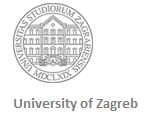Course title: Sociolinguistics
Course coordinator: Dr. Anđel Starčević, Assistant Professor
Instructor: Dr. Anđel Starčević, Assistant Professor
ECTS credits : 5
Language: English
Semester: II (summer)
Status: elective
Form of instruction: 2 lectures + 1 seminar per week
Examination: written
Syllabus
Week-by-week schedule
Week / Topic
1. Sociolinguistics as a branch of linguistics. The fiction of homogeneity versus language stratification and its varieties. Langue and parole (Saussure), competence and performance (Chomsky) versus communicative competence (Hymes). Speakers’s repertoire within speech community(Labov).
2. Regional (rural) and urban dialectology.Research methods. Horizontal and vertical view of language. Social class, age, gender and ethnicity as extra-lingistic constraints in the explanation of systematic language varieties versus free variants.
3. Language as a component of ethnicity. Substratum effect. Hypercorrection as a result of social pressure. African American Vernacular English and its origin. Is there a connection between race and language? Language attitudes. Matched-guise test results.
4. Language and gender. Grammatical and natural gender in languages (English, French, Croatian). Difference between male and female use of language. Language taboo for women . Women’s language use in ‘primitive’ societies. Accounting for differences between women’s and men’s language. Activities to change the present ‘biased’ usage.
5. Language varieties in context. Linguistic communities verbal repertoire. Registers. Style as a continuum and its social meaning. Slang. Difficulties in elicitation of casual, informal speech.
6. Address reciprocal, non-reciprocal .Power and solidarity. Polite and familiar V/T in Croatian and English. Address in some Asian languages.
7. Diglossia and monolingualism (Ferguson). Diglossia and bilingualism.( Fishman). H (high) and L (low) varieties. Code switching.
Language switching in multilingual communities.Identities.
8. Revision . Assignments presentations.
9. Interactional sociolinguistics. Discourse analysis. Conversation as structured, non random, sequences of utterances. Cooperative principle (Grice) ; forcing utterance interpretation. Language functions (Jakobson). Direct and indirect speech acts. Intercultural misunderstandings. Interethnic communication differences. Men and women in conversation.Poststructural views on discourse, style and identity.
10. Nation states, monolingualism and multilingualism. Individual and social bilingualism.
Minority languages in nation states. Welsh and Scots Gaelic. ‘Melting pot’ in USA; bilingualism and ‘English Only’.
11. Standardization. E. Haugen’s model. Status planning and corpus planning (H.Kloss) Standardization of English. Samuel Johnson and his dictionary. Standardization of Croatian and Norwegian (Bokmal and Nynorsk). Ausbau languages (Kloss). Standard language ideology.
12. Language and Geography. Traditional dialectology. NORM. The spread of innovations. The loss of /r/ in English. Dialect levelling. Koineization. Dialects in USA. Innovations across language barriers: Schprachbund, Balkanisms.
13. Languages in Contact. Lingua franca. Simplification and reduction in pidgins. Portuguese as the basic structure of pidgins? Creole. Structural similarities in Creoles.
14. Sociolinguistics and ‘new social sensibilities’(Quirk) . Intentional efforts to change language and language behaviour towards women and minorities. Language discrimination, racism and sexism. ‘Political correctness’.
15. Revision and assignment presentations.
Required reading:
Peter Trudgill: Sociolinguistics, An Introduction to Language and Society. 4th edition, Penguin, 2000.
The Routledge Companion to Sociolinguistics, eds. Carmen Llamas et al. Routledge, 2007.
R. Wardaugh & J.M. Fuller: An Introduction to Sociolinguistics, Wiley Blckwell, 2015.
Suggested Reading:
1. Romaine : Language and Society , Oxford University Press, 2007.
2. Stockwell: Sociolinguistics, A resource book for students,2nd edition, Routledge, 2007.
3. Hudson : Socioliguistics, 2nd edition, Cambridge University Press, 1996.



